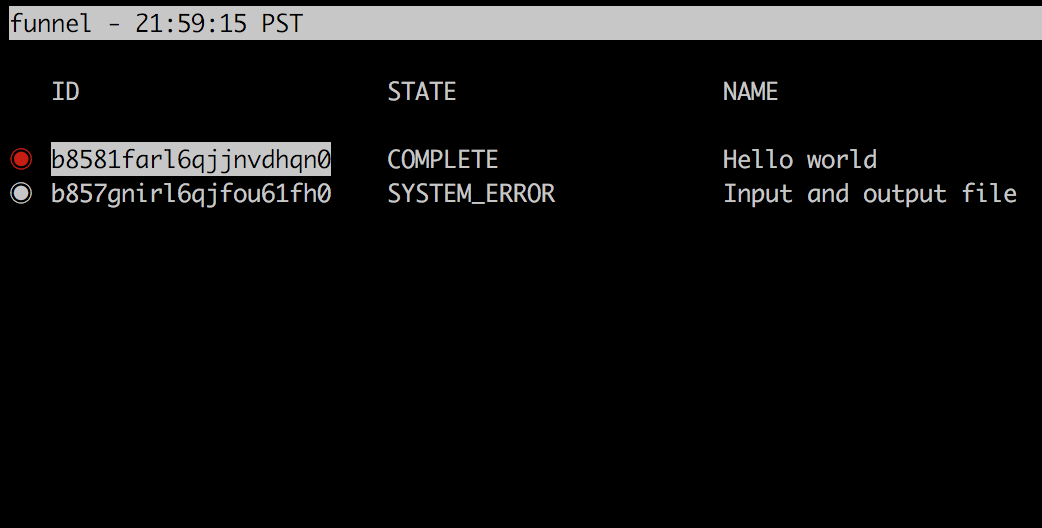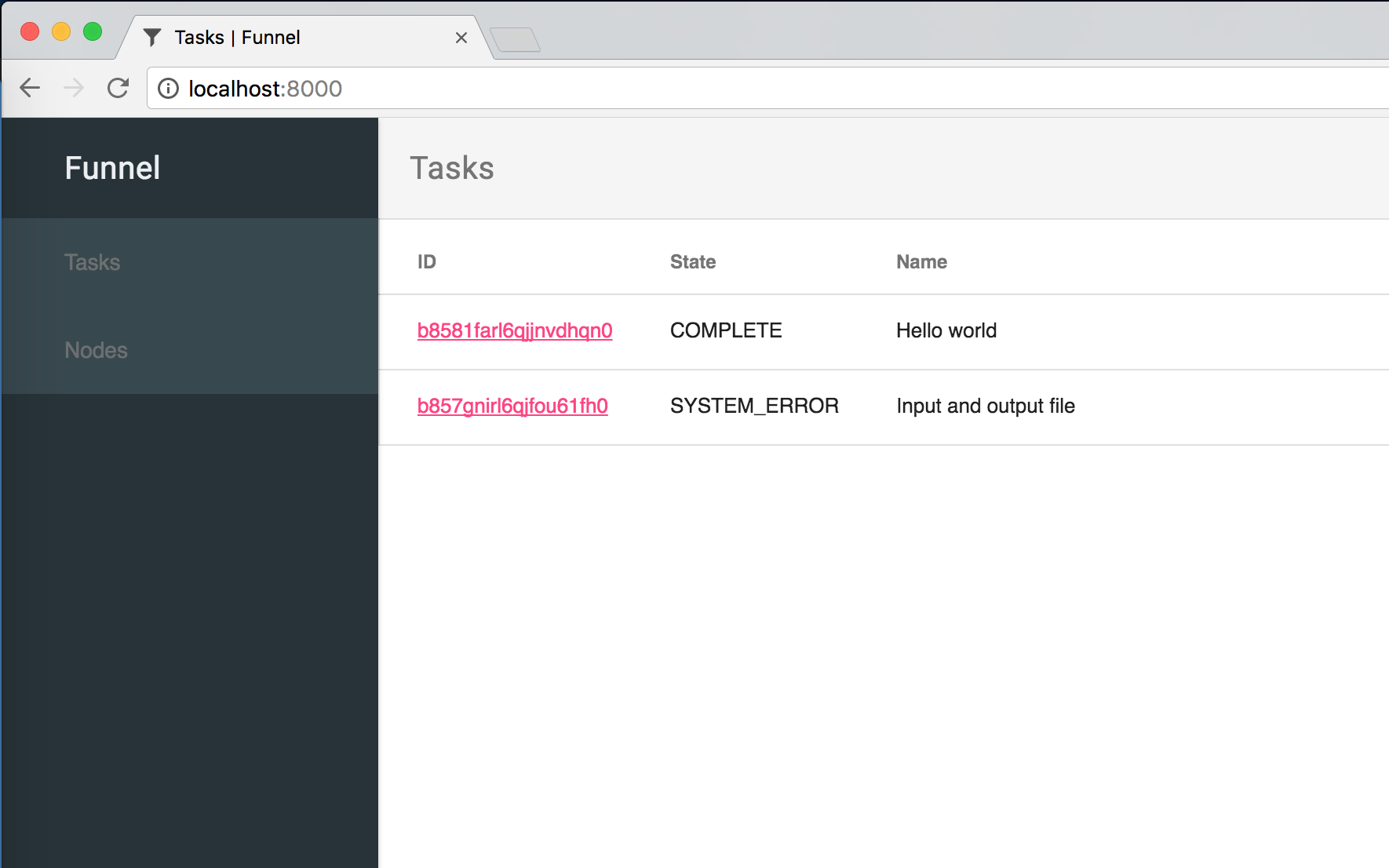Simple API
A task describes metadata, state, input/output files, resource requests, commands, and logs.
The task API has four actions: create, get, list, and cancel.
Funnel serves both HTTP/JSON and gRPC/Protobuf.
Standards based
The Task API is developed via an open standard effort.
Workers
Given a task, Funnel will queue it, schedule it to a worker, and track its state and logs.
A worker will download input files, run a sequence of Docker containers, upload output files, and emits events and logs along the way.
Cross platform
We use Funnel on AWS, Google Cloud, OpenStack, and the good ol' university HPC cluster.
Adaptable
A wide variety of options make Funnel easily adaptable:
- BoltDB
- Elasticsearch
- MongoDB
- AWS Batch, S3, DynamoDB
- OpenStack Swift
- Google Cloud Storage, Datastore
- Kafka
- HPC support: HTCondor, Slurm, etc.
- and more
A quick introduction
Define a task
A task describes metadata, state, input/output files, resource requests, commands, and logs.
For a full description of the task fields,
see the task API docs and the the task schema.
$ funnel examples hello-world{
"name": "Hello world",
"description": "Demonstrates the most basic echo task.",
"executors": [
{
"image": "alpine",
"command": ["echo", "hello world"],
}
]
}Start a Funnel server
localhost:8000 is the HTTP API and web dashboard.
localhost:9090 is the gRPC API.
$ funnel server runserver Server listening
httpPort 8000
rpcAddress :9090
Create a task
The output is the task ID.
This example uses the development server, which will run the task locally via Docker.
$ funnel examples hello-world > hello-world.json$ funnel task create hello-world.jsonb8581farl6qjjnvdhqn0Get the task
The output is the task with state and logs.
By default, the CLI returns the "full" task view, which includes all logs plus stdout/err content.
$ funnel task get b8581farl6qjjnvdhqn0{
"id": "b8581farl6qjjnvdhqn0",
"state": "COMPLETE",
"name": "Hello world",
"description": "Demonstrates the most basic echo task.",
"executors": [
{
"image": "alpine",
"command": [
"echo",
"hello world"
],
}
],
"logs": [
{
"logs": [
{
"startTime": "2017-11-13T21:35:57.548592769-08:00",
"endTime": "2017-11-13T21:36:01.871905687-08:00",
"stdout": "hello world\n"
}
],
"startTime": "2017-11-13T21:35:57.547408797-08:00",
"endTime": "2017-11-13T21:36:01.87496482-08:00"
}
],
"creationTime": "2017-11-13T21:35:57.543528992-08:00"
}List the tasks
$ funnel task list --view MINIMAL{
"tasks": [
{
"id": "b8581farl6qjjnvdhqn0",
"state": "COMPLETE"
},
...
]
}Quickly create tasks
The "run" command makes it easy to quickly create a task. By default, commands are wrapped in "sh -c" and run in the "alpine" container.
Use the "--print" flag to print the task instead of running it immediately.
$ funnel run 'md5sum $src' --in src=~/src.txt --print{
"name": "sh -c 'md5sum $src'",
"inputs": [
{
"name": "src",
"url": "file:///Users/buchanae/src.txt",
"path": "/inputs/Users/buchanae/src.txt"
}
],
"executors": [
{
"image": "alpine",
"command": [
"sh",
"-c",
"md5sum $src"
],
"env": {
"src": "/inputs/Users/buchanae/src.txt"
}
}
],
}Monitor tasks in the dashboard
Tasks can be monitored in a terminal dashboard.
$ funnel dashboard
There's also a web dashboard at http://localhost:8000

Connect to a remote server
Usually you'll want to use a remote Funnel server. For that, there are CLI flags and envionrment variables.
$ funnel -S http://funnel.example.com task list$ FUNNEL_SERVER="http://funnel.example.com" funnel task listNext Steps
There's a lot more to learn about tasks and Funnel. More information can be found in the docs and the CLI help.
$ funnel helpDrop in for a chat.
Join the Gitter channel.
Get the code.
Head over to GitHub and dig in.
Give feedback.
Let us know what you think.